|
Guest Blogs |
|
The average indie book sells 250 copies. In it’s lifetime! Trade publishing isn’t much better at 3000. While I couldn’t find what I would consider a reliable source for the above numbers, this is what is propagating all around the internet. And I believe them. It’s hard to sell books. I also see reports that if we discount the outliers (J.K. Rowling and the Bible), the average book sells around 2000 copies overall, for its lifetime. While there is no guaranteed way to get your first 1000 fans, this article will attempt to showcase the importance of finding fans over unit sales. A note about “sales” Sales means something different to different people and different markets. For instance, a traditional publisher might print 10,000 copies on the first run, and report this number to the author. More likely, they’ll report the number of books they have placed in bookstores. When a bookstore “buys” a book, they get it at a discount, usually 45-55% off the cover price, and are able to return them within six months if they aren’t selling, or the store thinks that they won’t sell. So for the example above, the publisher might report that they “sold” 8,666 copies, when these “sales” were actually bookstore placements. Next up, actual physical copies sold directly to readers through the stores. This number is tracked on Bookscan, but not all sales are tracked. Most major chains report sales, and these numbers are used by the NYT and other media outlets as raw input for their weekly bestseller lists. Publishers rarely report these sales, and part of the reason is that they cannot track them. They can track the Bookscan list and the orders placed by bookstores, but as I said, this doesn’t account for every unit sale. The Actual Sales numbers. The numbers vary, and most sources can’t even tell you which numbers they are looking at. They rarely get them from the publisher. But there is one truism about book sales that penetrates every report on average book sales. That is the conclusion: not enough. For the sake of argument, I’m going to stick with the number I quoted above for indie sales: 250. Indie authors sell in various ways. Local authors who are willing to hustle can easily reach this number in direct distribution to a local audience, but gain very little momentum across the rest of the world. Clever marketing people can secure enough online sales of ebooks to make the quota. But the sad truth is this: I don’t know who came up with that number, or how they got it, but I assume its a mean average, based on my limited experience and communications with other authors. I imagine that if we looked at the median, if we were able to look at the median, the number would be much more dire. My guess would be around 50. I know authors aren’t always good at math, so for the sake of clarity, mean is the total number of sales divided by the total number of books in any given sample. Median is sorting the books in a line beside each other, and picking the one in the middle to see how many it sold. Again, this is for indie authors. Now that I have your attention Do I have your attention? Okay, then read carefully, because this paragraph is important. I’ll put it in one of those quote block things to emphasize the point: "For an independent author, your lifetime sales for any book are directly dependent on the size of your platform, i.e. your fans and readership." This might seem like a curse at first glance. You might be wondering why the hell you bothered to become an author. But this statement comes as a blessing in disguise. It means that as your readership grows, so will your book sales. This is also true for trade published authors. Yes, they get the cool shelf space and a little media push, but publishers are doing less and less to push debut authors, which means at a certain level, it’s still on the author (specifically their platform) to make the book sell. They are further constrained by deadlines. In most cases, if you don’t earn out 12 months after release, your book goes out of print. (I have a friend this happened to, and it took years for him to get his rights back and self-publish his books) Ever wonder why books are sorted by author name at the library? Because established authors are selling new books on their own reputation, not on clever marketing, or even that wonderful front table at Barnes and Noble. That table is for people who already have an audience walking in the door, who wish to say, “Hi, nice to see you again. I released another book. You should check it out.” Success with debut novels is much less, even on the new releases table. But how do I build an audience? You get off your ass, and get your book in as many hands as possible, by any means possible. Most often I get this question from authors hustling for every local sale they can get. “Most of my readers prefer buying the signed copy straight from me,” they say. That’s awesome, but by settling into that state of mind, you are automatically limiting your readership to those you can meet in person. And you’re spending your weekends sitting at a table instead of making use of your most available writing time to crank out more books. Your readership will grow, and indeed this is how a lone author attacked the process for years. Orwell is one example. Selling books out of the trunk of your car becomes your ONLY source of sales, even if the book is available everywhere online. There’s a billion ways to build an audience, but these days, EVERYTHING is online. Like it or hate it, that’s where the waiting bookworms are. I can’t tell you what will or won’t work for your books. Every individual book, regardless of author/genre/etc has its own audience. Just because Joe liked your first book, doesn’t mean he won’t hate your next. Historically, authors stuck to one genre, and it worked well to ensure that readers who already liked the author would continue to buy similar books. I’m probably wrong, but I don’t stick to that. I write across genre, perhaps intentionally, because my “ideal reader,” the target audience I wish to grab isn’t as influenced by genre as they are by my future forecasts, grit, and ideas to speculate on. My ideal reader wants to finish a book, and then think about the deeper context for the next three days. That’s who I write for. A niche audience. The biggest moment of my writing career to this point was when I found him. One reader I’ve been communicating with (who I’ve never met before) reads books for the same reason that I write them, and now I think about him every time I sit down at the keyboard. ONE reader. Your ideal target audience. Friends and fams are great, but finding that one true rabid fan who will assault his friends and family with your work is an irreplaceable asset. Going from 1 to 1000 This is a long discussion. I gave one tactic in my prior example when I hit 61 on the Kindle Bestseller List for free ebooks. According the the updated history of that book, Amazon now claims it hit 58, but I didn’t get any screen-shots of that…so… The point here, is regardless the audience you have now. Imagine there were 1000 people out there who bought everything you put out, forever. Each time you released a book, you immediately sold 1000 copies. Compare that idea to what you are doing now. Building a platform is more important than unit sales at a given marketplace or signing. It’s ALWAYS been more important, for EVERY product. Here are some general ideas. These shouldn’t be seen as a to-do list, but rather a spark of ideas. You bring the tinder. Start with any one of them, and then figure out the best way to reach your ideal reader, and do whatever you can to ensure they read the book.
You might wonder what that weed is in the picture at the top of this post, or what it’s doing there. The plant is called mullein, or often “witch’s torch,” “devil’s torch,” “poor man’s flannel,” or any of fifty other common names. It grows like a lot of weeds, forming a basal rosette of leaves it’s first year after germination. The next year, it sends up that spike of flowers, quite aggressively. It builds a platform first, and then launches like crazy. One plant can spread as many as half a million seeds. When I think about marketing, I think about that plant. It’s cozy, warm, comforting, and incredibly helpful. Smoke from the leaves has been said by some to alleviate lung conditions, and the flowers can help with ear aches. When mixed with other herbs in, say, a tea, it is said to enhance any medicinal effects, giving a boost to your soothing chamomile. (some people are allergic to the fuzzy stuff on the leaves, so I’m not recommending any of this directly) The point here, the big picture, is that one plant, one book, or anything else can go viral, just like a tweet. Books take longer, as the virus has a long incubation period (they take a while to read). But a good book will spread, and it’s that spreading that we should be trying to facilitate, not one-off sales that must be repeated over and over. It’s not one plant in a garden that we should seek to be, but a noxious weed that keeps coming back, year after year after year. Selling one/two/ten books per day, every day, all year, isn’t a marketing trick. No marketing platform exists that could sustain sales over time indefinitely, and operate at a profit. But, when your average rate of sharing (i.e. so and so recommended this, it’s awesome, you should read it too) is high enough to overcome diminishing returns from a marketing push, new readers will be seeing your book every day. Eventually it will find your target reader, and they’ll shoot you an email (or tweet, or message, or whatever). THESE are the fans you want, and the ones you should focus on. You won’t find a thousand all at once, but gain them one at a time, and they’ll continue to support your work as long as you continue to put out books at the same level of awesome. And you will, because if there is one consistency I’ve noticed among authors, it’s that they get better at writing and storytelling with each book. Germination It isn’t going to happen overnight. Most creators work their ass off continually for 10-20 years before becoming an “overnight success,” if they get that far. When you find that wonderful reader who loves your book, welcome them with open arms. They are the best person you could ever hope to meet, and bonus: if they love your writing that much, it means you have something in common already. You have a common ground to forge a lasting friendship. For the few “true fans” I have, I would do anything for them. We chat back and forth via email, and it isn’t always about books, or even anything literary at all. These are the people that see my vision and simply “get it.” Friendship comes easily. So, to recap, here are the steps. Write awesome book (and package it well – cover/blurb/etc) Tell your existing audience and release book. Make a push to get as many copies out over a short window as possible, even if it means giving the electronic version away for free. On trick is what I did in the post I mentioned earlier. If it spreads (you will see residual sales start to trickle in on their own without additional advertising), then your book has some degree of awesomeness, and it is hunting for true fans so you don’t have to. When your fans reach out to you, don’t be afraid to make friends. You’ll actually find it incredibly easy. Your book already broke the ice. A great book is the ultimate wing-man. Repeat. Hope you enjoyed the post. I think the scope on this one was a bit bigger than I prepared for, but if you gained some nuggets of wisdom, and the post was helpful, then I’ll call it a success. Lots to think about here, so feel free to ask questions in a comment or email, or just let me know what you think. Originally published at writefarmlive.com on June 21, 2018.
4 Comments
Written by Alyse N. Steves
Almost two years ago, I published my first novel, Child of Humanity. The overwhelming sea of emotions I felt as I saw my eBook listed on Amazon was among one of the most rewarding experiences of my life. After four years, I had done something that, sometimes, felt utterly impossible to accomplish. I received congratulations from friends and family, who applauded me for my hard work and perseverance. One of the most frequent comments I received was their amazement that I was a published author at such a young age. “Self-published,” I would correct. With those words, you could see the excitement dull in their eyes. “Oh,” they’d say, “It’s still cool.” I would try not to let them see me deflate, suddenly feeling as if my major accomplishment – my lifelong dream-- was inadequate. Perhaps the worst comment I ever heard was: “I tried a self-published novel once. It was the worst thing I’ve ever read. I’ll never read another self-published book again.” It’s no secret that some self-published books are just plain bad. Unfortunately, it would appear that disgruntled readers, tired of more misses than hits in the world of indie books, have decided to write off the entire collection of independently published works as subpar. For this reason, I’ve found myself asking what the responsibilities of a self-publishing writer are. Do we have responsibilities to uphold to our readers as well as to the self-publishing community as a whole? Should we be policing our community, requiring a higher standard for those who want to independently publish? We can’t pretend that we don’t know what that one well-meaning friend was talking about. We’ve all been there. We see a promising self-published novel advertised on Twitter or Facebook, and the link takes us to a five-star book on Amazon that has nothing but glowing reviews. The readers gush about it. They can’t get enough about it. Excited, you purchase the book, only to find a myriad of typos and grammatical errors on the first page alone. It doesn’t get better beyond that. Too many self-published books suffer from non-existent plots and lackluster character development. Too often, the book is left unfinished, or you get to the last page feeling ripped off. This leads me to my first question: are self-publishing writers obligated to produce a high-quality book for their readers? Should it be an expectation that we all have polished, edited stories for sale? Many people can’t afford an editor. I understand that. When I was trying to get Child of Humanity published, my Kickstarter barely had any support, and to get the job done, I ended up taking out a small loan. It was my dream, so I was willing to make the financial sacrifice, but should every aspiring writer out there be obligated to do the same? Of course, there’s the workaround—the betas. We all know of at least one person who would be willing to be a beta reader. Still, that doesn’t mean that your one friend who happens to really like reading is going to be able to suggest ways to strengthen your characters and knows the difference between an en dash and an em dash. Our friends can only do so much. So then, should the burden fall on the writing community? With our experience, should we offer ourselves as betas? Should we serve as editors to the needy? Support our fellow writers’ fundraising campaigns? Or is this one of those sad facts of life that we just can’t work around? It goes without saying that some people see book writing as nothing more than a way to make money. Once, to my utter horror, I heard a fellow writer at a group meeting utter the dreaded words: “I decided to write that one novel, even though I wasn’t feeling it. It didn’t require much thinking and was an easy five bucks.” I was drawn to self-publishing because I have full control. It was a way for me to make my dream come true. There is no one to tell me what can be included in my book and what needs to be cut. The cover and title are my own ideas. I love the artistic freedom of self-publishing, so do I just accept that, intermixed with those of us who have a passion for story-telling, there are the businessmen who see the craft as nothing more than a way to get a few bucks off people? Even when it produces bad stories that hurt our reputation? Should we just accept that, intermixed with those of us who pour our heart and soul into our work, there are those who just want it done for the sake of saying they did it? Of course, there is the other option. Since publishing my own story, I have begun seeking out other self-published novels to add to my reading list. It is my goal to support the self-publishing community by reading and reviewing as many self-published books as I can. I have read some amazing books, which I will post the reviews of on this blog soon, but I have also read books that were clearly hastily released before they were ready. So, question number two: do self-publishing writers have an obligation to be critical of other writers’ books? Too often, I’ve found myself in a situation where I’ve felt like the self-published story I’m reading is only half baked. In a rush of excitement to get their masterpiece out into the world, the author has released something that, honestly, is no good. But my goodness, they are so proud of it and excited about its potential! Do I have it in me to give them the critical star rating? Do I want it to be me who crushes their excitement—maybe even their dream? Typically, I feel an obligation to the readers and do just that, feeling my stomach twist as I submit the review on Amazon and sit on the couch afterward, feeling as if I had kicked a puppy. That brings up another issue: so many of us are desperate for reviews that don’t come from our mothers and best friends. We need good, honest reviews from people who don’t know us, and we need a lot of them. Our story, which we worked so hard on, is being overlooked by potential readers because it simply doesn’t have the numbers. To remedy this situation, I will sometimes offer to exchange reviews with another self-published author. The agreement is always that I will give an honest review of your book if you will give an honest review of mine. But … sometimes, their book falls into the half-baked category. Sometimes, I’m left turning the last page, realizing I will have to give a critical review. And I wonder … will they return the favor? If I give someone less than five stars, will they retaliate by giving me the same rating or worse? I admit that this has happened. It was not a pleasant experience, and it really turned me off from reviewing any more indie books. So, what’s the answer? Is this just what the self-published book world is: a mixture of some of the most creative, well-written books available intermixed with half-assed scams or dreams that just don’t make the cut? Are we obligated to be our own community’s police and patrol the eBooks on Amazon for the sake of the good ones? In my opinion, we can’t control what gets published and we shouldn’t. We should all be free to publish whatever we want, and we should have our creative voices be heard without fear of censorship. However, I think we should feel obligated to read other indie books and leave honest reviews, even if we may face retaliation on our own books. If we want the good ones to stand out, and if we want to change the tone of how indie books are viewed by readers, we owe it to ourselves to take on this extra responsibility. I’d love to hear your opinions on this. If you have any suggestions or comments on what you think the obligations of a self-publishing writer are, I’d love for you to send me your response at AlyseSteves@gmail.com, message me at my Twitter account (@AlyseSteves), or post a comment on this blog. Maybe, together, we can figure out the answer. Another Jack Hunt ApocalypseThe end of the world is a topic which fascinates some people more than others, and I believe we can safely say Jack Hunt is part of this interesting book. Previously he has tackled the topic of an electronic apocalypse in his EMP Survival series, exploring in great depth the personal and societal effects such an event would have on humanity. In his standalone novel The Wild Ones, Hunt has decided to take a slightly more lighthearted approach to the topic of Armageddon by turning his attention to a timeless classic: zombies. It is certainly true we've witnessed a veritable array of such novels hitting the shelves in recent years, but in my opinion a few of them are worth a read for the fresh perspective they provide on an old subject... and this happens to be one of them. In any case, to give you a brief idea of what's going on, the story takes us to the Adirondacks, a chain of mountains near New York. A group of teenagers are attending a novelty of today's world, a summer zombie survival camp meant to teach them everything they would ever need should the most imaginary of apocalypses come to pass. I'm certain you already know where this is going: against all odds, an actual zombie outbreak happens in the mountains as an outbreak infects people and causes them to behave in a violent and uncontrollable manner. Being stranded more or less in the middle of nowhere and with mindless killing machines bearing down on them from all directions, the small group of inexperienced teens must band together, putting their knowledge of zombie hunting to the ultimate test. These two weeks were meant to be some of the most memorable and enjoyable times of their lives... now they'll be lucky to make a step without dying. Group DynamicsAt first glance, I will admit this appears to be nothing more than yet another zombie novel to read and forget, to catalogue with the rest of the generic pile. However, the deeper you get into this book the more you realize it has much more to offer. To begin with, the various character tropes we've become sick and tired of in these zombie novels don't really find their ways here. Instead, we are presented with a realistic group of teenagers, all with developing and believable identities mired in flaws but with clear potential. Hunt made a great effort in making these kids behave in a true-to-life manner, one which will no doubt remind you of yourself or your friends at that age. As you get further acquainted with them, they begin to feel like real and valuable people rather than mere fodder for some zombie action. Of great interest to me was the author's decision to make this book, in part at least, a character study about group dynamics. There are numerous scenes putting psychological principles to the test where we witness how different characters behave and react in this ragtag group of misfits. We get to explore their human side so to speak, and while Hunt's writings do stem from his imagination, he makes a compelling case as to how young people would react to this situation. Even if you won't buy into his study, it will at the very least force you to think a bit as to how you would react to these circumstances. In any case, a break from zombie-slaying action we've seen in a million other works is always a welcome change of pace. Wild Times AheadWith that being said, this is a novel about teenagers ironically stuck in a zombie survival camp, meaning there is plenty of action to go around, coupled with some black humour strewn about here and there. There are plenty of enthralling fighting scenes and I'm glad to see they are up to Hunt's standards, being as vivid and memorable as the ones in his previous works. The plot itself has more twists and turns than you would expect from such a simple premise, seemingly revelling in veering through unlikely territories. While at first you feel quite confident with your ability to predict the characters' fates, as you close in on the ending that feeling becomes gradually weaker, giving rise to uncertainty. The author manages the herculean task of making us care about these teenagers, a feat which in my specific case is infinitely easier said than done. While it can certainly be said the path walked by these kids has a few less than realistic moments, on the whole their capabilities remain grounded and in the realms of the realistic. The author has an exceptional talent for keeping his characters believable even through the tougher situations where they must go above and beyond what's expected of them. What's more, we clearly see the characters being molded by their experiences, bearing the marks of pain and suffering from the inhumanity they are forced the endure and from the consequences of irremediable decisions they must make. Without spoiling too much of the ending, I am quite confident it has all the makings necessary to turn into an actual series. The Final VerdictThe Wild Ones by Jack Hunt is welcome breath of fresh air in the zombie apocalypse genre, taking a somewhat different approach to the topic. While the characters are teenagers I would still say this is very much a book for adults, filled with thought-provoking character study, a realism which at times feels dreadful, and welcome doses of black humour for comic relief. If this is a genre you enjoy then I can confidently recommend this book; there aren't many new experiences left to have in the undead Armageddon, and this is one of them.
David ben Efraim (Bookwormex.com) Find this book at: https://www.amazon.com/The-Wild-Ones-Jack-Hunt https://www.goodreads.com.com/The-Wild-Ones-Jack-Hunt Timothy Hallinan and his Ethical ThiefThievery is the kind of crime that commonly teeters on the brink between despicable and romantic, often depending on the target of the crime and the means. Many are the people who have fantasized about noble and moral thieves, with Robin Hood most likely representing the epitome of the archetype. There is something quite alluring about the well-meaning rogue, being capable of extraordinary feats most of us only dream of and having the correct moral guidelines to go along with them... ultimately making them harmless or even beneficial to the innocent. While in real life one would be extremely hard-pressed to find people of such a nature, it hasn't stopped Timothy Hallinan from creating our beloved ethical master thief Junior Bender, whose story he recently continued in King Maybe. Without getting too encumbered by the plot, it begins with Bender bungling the heist of a rare stamp from a professional assassin. In turn, this sets off a ridiculous and complicated chain of events that only causes things to escalate further up the crime ladder, into blackmail and perhaps even murder. And thus, Junior Bender finds himself caught in the middle of some macabre revenge plot, which wouldn't be all that terrible if it wasn't for the extremely inconvenient timing. As it happens, he is currently trying his damnedest to penetrate the fortress of a studio mogul, the titular “King Maybe” himself, a completely rotten and despicable man who nevertheless happens to be the most powerful figure in Hollywood. With assassins on his trail after the rare stolen stamp fiasco, Junior sees the clock ticking down and the noose around his neck squeezing ever tighter. Before we go further, I'd just like to assure you that you don't need to read the novels in any kind of order as each one in the series stands on its own. While you might miss out on some development, you'll never be confused as Hallinan always takes first-time readers into account. With that out of the way, let us continue. The Importance of People One of the most important aspects when it comes to writing a successful story are the characters. After all, if the people you follow and meet along the way don't retain your attention, or worse, turn out to be unlikable and give you no one to root for, then the story will end up failing no matter how skillfully it's written. This is why I'm quite glad that Hallinan is unbelievably talented when it comes to character creation. While technically there are plenty of secondary characters with minor roles to fulfil, it never feels as such because Hallinan devotes time to each and every one of them, ensuring they're developed into fully-fledged people with plenty of dimensions about them. It doesn't necessarily take overbearing descriptions to get the job done either: he gives us just enough information to make us realize there is much more to learn about any given person, as if they have their own history and life going on. Junior Bender himself makes not only for a fascinating but also a hilarious protagonist whose lines of thinking are generally quite easy to follow. Though he is certainly about as far from flawless as you can get, he's a very likeable buffoon (at times anyways) and never fails to bring a smile, and sometimes even a laugh with his dry and witty humour. For those of us who have read the previous novels, we also get to see his growth as a character and human being, learning from his past mistakes and developing a new perspective towards the people in his life. If things continue at this pace, these books will start to feel like an actual biographical series. No Seriousness AllowedWhile the subject matter we're dealing with can get rather sombre at times, that doesn't prevent the author from going all out on the humour, a common thread that unites virtually all of Hallinan's works. The novel never takes itself too seriously or dramatically, to the point where it sometimes feels as if it's aware that it's actually a book. If dry, calm and witty humour is the kind you like, then I guarantee you will at least be wearing a smile throughout the read. All the funny moments seem to come very naturally and it never feels as if the laughter is being forced down upon us. With that being said, that doesn't mean Hallinan doesn't take serious care in crafting the plot and mystery surrounding it. The story threads are indeed woven with intricate attention to detail and take us on some rather unexpected rides which, nevertheless, never feel out of place. On the contrary, even the plot twists that take us by surprise feel very logical and natural, but only in hindsight... and that I believe is perhaps one of the, if not the most important quality in writing a compelling mystery. Even under the guise of humour, the story ultimately has tremendous maturity and quality to it. The Final VerdictTo draw the curtains on this review, it seems that even at this later stage in his career, Hallinan is still improving from one novel to the next. I'd venture to say that so far, this was the best-written Junior Bender mystery, offering a barrel of laughs and thrills which I believe will be enjoyed by anyone who wields a sense of humour and enjoys “master thief” type stories.
A Civilized Witch Hunt with Tony RichesLaughable in modern times, the idea of witchcraft was once taken very seriously and for an uncomfortably-long period women were accused of it left and right and subjected to executions or imprisonment. In the case of some women, the accusations were born out of their interests towards subjects that wouldn't be considered befitting a woman, especially if they were of a scientific nature. While that might sound like a cartoonish exaggeration of an age ruled by fear and ignorance, it was the very real story of Lady Eleanor Cobham, Duchess of Gloucester. She once had hopes of becoming the next Queen of England, but as Tony Riches tells it in historical fiction book The Secret Diary of Eleanor Cobham , fate had other plans in store. Before even discussing the story itself, I just want to point out that the author isn't one to substitute imagination for facts. He always strives for his novels to remain as accurate and well-researched as possible, so all the verifiable facts in history in regards to the duchess are taken into account and written around. Anyhow, Lady Eleanor's and her husband's downfall came when her family's enemies conspired against them, accusing the former of witchcraft due to her interest in astrology. She is found guilty and sentenced to be imprisoned for life by Henry VI. Over a hundred years after her death, some carpenters working on the Beaumaris Castle discover a box containing the duchess' diary, written in a secret code none could decipher... except for our narrator, who four centuries later has finally found the key to unlocking the mysteries within. The Shrouded EleanorOne of the main issues people who are interested in this case have faced is the lack of actual information about Eleanor and the kind of life that she led. The big events of her fate are known to us, but not much more... and for an author like Tony Riches, it's simply an invitation to let his creative ambitions fly a bit more than they usually do. After all, if we only know very little with certainty, I see no reason to fill in the blanks with our imagination, especially since this story is largely centred on her time spent as a captive, about which we don't know all that much. I believe that the author succeeded quite well in bringing to her to life and molding her personality into something realistic, though not necessarily likeable... and that's a point I'm sort of on the fence about. While I do understand the appeal of making a character that isn't sympathetic and feels real, it was perhaps a bit of a mistake to make her the protagonist as well. After all, the story is about her life and it might have been a better idea a bit less irritating and dangerous to her entourage. Additionally, there are instances where it becomes a bit obvious that the author isn't completely in his element writing a woman character when touching on subjects such as childbirth. With that being said, there are plenty of historical characters surrounding her and the enough information about them to keep us distracted and entertained through to the end. A Deliberate and Ambitious PlotThe plot of the book moves along at a relatively slow pace, and even at a bit less than three hundred pages it still takes its time to try and describe the times as best as possible. While he seldom gets the chance to really get down into the fine details, Riches gives a relatively complete overview of life in those times and the rules the governed it. With a lot of topics to touch on ranging from famous battles to political power struggles, it sometimes feels like a few of them are underdeveloped with a couple of things left unsaid. In other words, I think this novel could have benefited from being longer so as to give the author a better shot at immersing us into his universe. The whole twist of her diary being found and deciphered five hundred years later adds a bit of an interesting angle on the story, especially since it creates an interesting contrast between what actually happened to her and the distorted truth people in the modern age believe. There are jumps back and forth in time which get a bit confusing in some instances, but it's not too distracting as we can quickly infer whether we're in the deep past or present times. The Final VerdictTaking all the good and bad into account, I think it's safe to say that despite not being perfect, The Secret Diary of Eleanor Cobham remains a captivating read that touches on the criminally-overlooked life on an important woman on whom our information is unfortunately limited. It tells her story in an interesting enough way and attempts to justify her actions well enough that I would recommend it to those who have a fascination with the duchess.
Aimée Marie Bejarano Indie Author of multi-genre novels such as: “The Gateway Series” “The Angelica Series” and “Possessions of the Human Kind” Saga Chapter One. www.amazon.com/author/aimeebejarano
Owner of Dead Man Walking Publications- website coming soon! Recently I began really praying what I can bring to the table with the blog. I began thinking of my journey as a writer, beginning at age 16. Well, then I zoomed to the present. There are many things I can indeed help bring to the table in regards to what I did wrong. Publishing isn’t easy, the same goes for writing. I’m sure Mark can tell you it’s certainly a lot of work to proofread because you are trying to polish up every author’s novel. Hours of hard work goes into every word read, and every word circled in red. Then the difficult task of: reading over all of the editor’s notes, proofreader’s, and or the beta reader’s notes- Mark feel free to fix any typos I may have as well lol. So, this publishing thing is difficult work! Some of us don’t have the luxury of hiring an editor from the start, and that is precisely what I’d like to delve into. I’m sick with several diseases and on an extremely fixed income. At the time I wanted to publish, I had no author friends, neither family or friends who could spare the time to proofread for me at all. I reached out to Createspace. It was a small loan which killed the pocketbook. I completely turned to them for everything minus editing, it was far too much and I simply didn’t have it. Once they took over, I was disheartened when they couldn’t seem to find a cover fitting to my needs and the vision I had. Especially, the Biblical times. Then, it would cost around $200 more for access to additional photos which they can use. But the problem still rested, that no matter how often I spoke to them on the phone, their pictures were just not up to the vision I saw for my first book, “Angelica.”- Now re-titled, “Angelica, You Have Chosen Well”- Part One of the Angelica Series. I finally settled on an extremely dark cover with a candle lit. Not throwing someone under the bus, but it seemed I had someone working on my novel who barely began illustration. The front cover was in quotation marks. Embarrassing. And because I was so new to everything, did I know? Not at all. It took others asking me why it was there to even consider. It released without so much as a bang for anything including the hard work put into it. My family did buy a copy here or there but as for gathering a readership, it was a far cry to have any. The front cover was disappointing. I figured this is what all indie authors must go through when first starting out. So, I worked on my next book. This time, I bumped into someone who was willing to help. Unfortunately, this person is a menace to the publishing world, and I saw evidence posted in dozens of places to this person’s insanity. So guess what happened to me? I was suddenly dragged into it. I was even being called names on Twitter for my involvement with this person. I had no idea who they were, I was a newbie. But afterwards realized this person was dragging my Twitter handle into all of their insane rants. I finally blocked them. I took everything they worked on and learned how to redo it on my own. I even received a one star review for the book simply because I worked with this person. They made it clear they did not read the book and hated this other person and pretty much me- Amazon refused to remove it even if they mentioned they didn’t read it. Then later, this person decided to give it a chance and amended the review, but still bashed me pretty well. It must have bothered them because shortly after, I received a message on Facebook apologizing for throwing me under the bus. I have completely forgiven this person but it wasn’t enough to remove anything about that review lol. And all the while, a lot of self-righteous authors were telling me they were going to help me and send me a list of all my mistakes- yep it does happen. D.M’s still hit me up from time to time thinking their editing is better than what I hired. It happens all the time in the publishing world- I even take peeks at best-selling book reviews or indie author book reviews and it’s almost the same case. Authors criticizing or critiquing the other author’s editors. When will it end? Problem is it lowers who you are as a writer, as an author to what you shouldn’t be. Most were trying to take away and strip me of my original writing style. It puts some sort of distaste as if something is wrong with you and your writing, so then the question sits, “Why write at all?” Promises from author’s to aid, and it became where I was growing irritated by it. Of course, I know we can learn new things and God knows I love to, but for this to occur with things such as, “I liked the book BUT I’m going to send you papers of all the mistakes you’ve done.” “I like the book a lot BUT you shouldn’t write it in the present tense but in the first person. Like from the main character’s point of view.” “I like the story but the editing stinks.”- of course this was nitpicking my most recent review lol. ETC. And quite frankly, I don’t like being beholden to anyone. Promises come and go. People giving insights on how they think I should write the book was all I needed to say, “Enough. I’m doing it as the Lord tells me to write it, and not because others declare it or push me around. And I will redo it better than before including a new cover and an editor.” The Lord knew all I needed was Him in all of this mess. Did I change the POV as directed? No way! I had had enough. The only good thing coming from what’s happened is I slowly began connecting with genuine, kind author’s and I listened and read all I could and learned new programs to help me along this journey. Most of it I learned alone. The only One beside me was the Lord. I didn’t have all my ducks in a row years ago, but was learning how to format on my own for paperbacks etc., found my own illustrator, and finally recently at the beginning of this year, all my novels were redone with brand new covers, in 2nd Editions, and edited! The mistakes I made seem to haunt me still since there are copies of my books floating around that I know are not professionally edited, and thus the reviews that occasionally trickle in reflect that. Presently, I have issued a disclaimer to the readers that since March or April of 2017, my books are redone and edited and the reader can now update to a new version. Am I sorry that I didn’t wait? You know, I’m sorry to the Lord for my hastiness, however I’m not sorry things turned out the way they have. I’m fully dependent on the Lord and He has used me to be able to push through each novel where I can format and do all myself, including book trailers. The only thing I need help with is editing and illustration. But, for something good coming out of it is definitely the price I’ve paid for it. I believe even now, that there are readers out there for all of my books who will love them and stick with me as I publish. I know I’ll get another chance for these books to make it to someone’s kindle or into someone’s hands. I believe and have faith I’ll get that chance again. Mistakes are made but it isn’t a life sentence, which is why I love this meme! I saw it on Twitter and had to share it. Whoever came up with the phrase, thank you because it is so true! Another great thing is I’ve started my own self-publishing house in 2015 which Lord willing next year, I plan on having other authors underneath. I know God has some great things in store for me and for all of us if we simply ask and believe He can. It has been worth all of the: stress, tears, doubts, discouragements, bad reviews, name calling (Cyber bullying), belittling, and anything else that I’ve gone through. If this is what I’ve had to do to get on my feet, then I would go through it again to understand all that I should for what the Lord has called me to do. Ask, and it shall be given you; seek, and ye shall find; knock, and it shall be opened unto you: For every one that asketh receiveth; and he that seeketh findeth; and to him that knocketh it shall be opened. Matthew 7:7-8 KJV. What are some things He has called you to do? Just because something is hindered or bad things happen, doesn’t necessarily mean He is not in it. Get on it! Time is short and we should be about our Father’s business. Maybe you are a writer, author, poet, illustrator, digital specialist, or artist who loves the Lord. Don’t let those things fall by the wayside. I often hear many indie authors say, “You know my first book was a train wreck.” Or “My first book was horrible it didn’t do very well.” Or “I hate my covers.” Or “I’m a much better writer now than I was then.” I can relate with all of it. Funny thing is, currently a ton of indie author’s I know are publishing 2nd Editions with new covers as well! The great thing about indie authors who publish is you control everything about your book! In five years, you can release a 3rd Edition for all you want! See? Not alone! Sure there are a lot of people doing what we do every day. But if He has called us, then no one can do it like us! Stan I.S. Law Visions of Mankind's FuturePretty much every one of us has some kind of vision for what awaits mankind in the future, for the sort of evolution that we'll be subjected to, generally based on the course we've taken in recent years. Some people are quite hopeful and optimistic about our prospects, believing that we'll eventually make the necessary strides in medicine, energy generation, and wealth distribution to create a sort of utopia, at least for most of the planet. On the other hand, there are others who see us as driving ourselves into the end times, slaughtering each other with as much zeal as we cut down forests and drill for oil, with an eventual mass extinction being inevitable. And then, we have thinkers like Stan I.S. Law who have a different way of looking at things, and it shows in his book Gift of Gamman where he presents us with a unique vision of what awaits us. To keep this long story short, we are taken to a future where humanity is assailed by a rather strange enemy: a plague of placidity. Indeed, there's something making its way around the planet, turning people into lethargic and complacent vegetables who eventually just drift off into an eternal sleep. Slowly but surely, the human race is dying and there seems to be very little hope for its survival. As such, a 243-year-old astronaut, Adam, is sent on a one-way mission into deep space in an attempt to find some sort of salvation for humanity. Suddenly, he realizes that he is capable of manipulating energy in order to move through time and space. Upon returning to Earth, he becomes exposed to an extremely-advanced alien race, and so begins his grandiose awakening. A Mish-Mash of the ElementsThose of you who are familiar with the author know that he doesn't like for his books to be easily-classified, with his stories diverging into many different genres at the same time, as did The Avatar Syndrome for instance. While Gift of Gamman might officially be classified as a science-fiction story, it's a whole lot more than that in my eyes. The backdrop is indeed futuristic, but there are many additional elements mixed into the plot stemming from the realms of romance, drama, adventure, science, mystery, spirituality, philosophy and even metaphysics. While there are a few action scenes sparsely peppered throughout the book, the brunt of the focus is placed on the characters and the many trials they must go through, most of them internal. Speaking of the characters, I was pleasantly surprised with how wide and varied of a cast this book has. While I expected Stan I.S. Law to solely focus on the few main characters in as much detail as possible, he found a way of bringing to life a whole crew of secondary actors with a lot of depth. Not only are they all easily recognizable and unique in their appearances and voices, but their interactions with each other are always a pleasure to behold thanks to the author's acute understanding of how dialogue works. In my opinion it is one of the hardest things to do right in a story, with the slightest mistakes making an entire exchange feel unnatural... and Stan I.S. Law makes none of them. For Thinkers and Adventurers AlikeIn many cases, when authors try to write a story that is both profound and entertaining, they end up under-delivering in both categories; the story turns out short and predictable, while the meditations are little more than common sense apparent to everyone. I am certainly quite glad to Gift of Gamman managed to avoid this troublesome fate, being a strong contender on both fronts. While the plot could stand to move a bit faster in a couple of places, overall I'd say it flows very smoothly and easily, never leaving you bored as there is always something grand at stake or a mysterious phenomenon that needs to be understood. The characters are very easy to follow and in time we begin to care about them as much as the protagonist himself. There are enough twists, turns and complications in the story to keep you on your toes, and I can safely say that the moments where you're able to predict what's coming next are far and few in-between, barely existing at all. At the same time as he progresses his story, the author finds a way to weave in his numerous philosophical introspections touching on a surprising number of topics from the domains of love, enlightenment and evolution, just to name a few. Like with every other one of his books, the author aims to make us think as much as possible so that we might one day draw our own conclusions about all those things that keep us awake at night. He never sounds preachy, nor does he force his views upon us; rather, he simply explores ideas and shares whatever observations he can come up with. The Final VerdictWith all being said and done, Gift of Gamman is a well-written book that delivers on all fronts, just like the rest of Stan I.S. Law's novels. It entertains, makes you think, connects you with characters and is simply an enjoyable ride that you can take over and over again while finding something different to ponder on every time. It's a book I highly recommend if you enjoy philosophical science-fiction stories that place an emphasis on character development, introspection and spirituality. Article written by David ben Efraim (Bookwormex.com)
You can buy this book at: https://www.amazon.com/Gift-of-Gamman-Stan-I-S-Law https://www.goodreads.com/Gift-of-Gamman-Stan-I-S-Law Recently, at my writer’s group, a fellow writer who is beginning her chosen art form told me that she was advised to not write above an eighth-grade level. I remember several seconds of stunned silence between us before I asked, “Who told you that?” Based on her troubled countenance, I don’t doubt that the horror of this suggestion came through in my tone. I’ve also been told that my facial expressions convey exactly what I’m thinking, so I hope I didn’t overwhelm the poor woman with my response. I wanted her to run screaming, just not from me. If I didn’t scare her off, I’ll make sure I soften my reactions when discussing such matters in the future.
Still, I am shocked that this type of bad advice is floating around writer’s groups. The last time I checked, there were still twelve grades a student in America needed to complete. Somebody please tell me if the progression of education stopped at grade eight. That would mean my child, currently a senior, has read nothing beyond an eighth-grade level for the past four years. That’s insane. Then again, I recall the small heart attack I experienced when I saw Stephenie Meyer’s The Host on the high school reading list. Which piece of classic literature found itself guillotined at the inclusion of that piece of tripe? I have suspected for a long time that the art form of writing was under attack. My fellow writer’s comment confirmed this. So when did the dumbing down of American literature begin? I don’t know if I can actually pinpoint the precise moment it occurred, but I can tell you the moment I became aware of it. (And shame on me for not being more vigilant if it took place sooner.) Dumbing down is the deliberate oversimplification of intellectual content within education, literature, cinema, news, video games, and culture in order to relate to those unable to assimilate more sophisticated information. I remember the day I saw a t-shirt printed with the statement “underachiever and proud of it.” I had another moment, not quite as intense as that with my fellow writer, but one in which I was completely baffled. I could not fathom a person or society comprised of people who willingly settled for mediocrity in anything and a world in which one did the bare minimum to get by. There is no hope of success when one functions under such a principle. And yet, this is exactly where we, as a society, have fallen twenty-five years later. It’s as if those who bullied the smart kids for hanging out at the library weren’t content to just harass their fellow students. They wouldn’t stop until the smart kids not only condoned but encouraged this stagnation of the intellect. If you don’t get on board—don’t hold yourself back from seeking knowledge or temper your drive and ambitions—you’ll be labeled a snob in the least and intolerant at the worst. So again I ask: why this attack on art? Because art is dangerous. Art tells the truth. Artists are freethinkers who challenge the status quo. It was a novelist and playwright who said, “The pen is mightier than the sword.” A gold star to anyone who can tell me who said this. Here’s where the problem of proud underachiever comes in. The generation in which this concept became acceptable doesn’t care enough to find out who said the above-mentioned quote or what the quote even means. They are too lazy to want this information for themselves and are disdainful toward anyone who does. If it isn’t required of them in school, and based on the poor quality of curriculum in American schools I doubt that it is, they won’t reach out and grasp the knowledge. That’s pathetic when you consider that we live in an era where knowledge is readily accessible. No more searching through the card catalog or plowing through large volumes of encyclopedias. You don’t even have to go to the library. Just ask Alexa, Cortana, or Google what you need to know from the comfort of your couch. Be sure to wait until the commercial or you’ll miss the best part of your favorite recorded TV show. What troubles me about his indolent attitude is that it’s creeping backward and contaminating older generations. Hopefully it won’t pollute the writing of those already established and feeling pressured to churn out more or older writers just beginning to pursue their passion. As for me, I am personally committed to fighting this process of dumbing down by writing the best literature I can and by seeking to improve myself in every way. I am not afraid to compete, to go for the gold. After all, why run the race if I don’t intend to win? I’ll most likely be among the first to die if America ever succumbs to an oppressive regime because we all know how much tyrants fear artists. But If I can leave behind a written work that the next generation, possibly the survivors, smuggle from home to home and hold up as an example of what they should strive for, then my art—my writing—will not have been in vain. The Christopher Moore Perspective on King LearShakespeare is an artist who managed to create works which transcended the centuries and remained current to this day and age. Stories like Romeo and Juliet, Hamlet and King Lear have seen countless adaptations and re-imaginings over the years spread through virtually every entertainment medium you can imagine. These works have been explored and expanded upon by many great minds, one of whom is Christopher Moore, author of the Pine Cove trilogy. In his book Fool we are treated to a reworked version of King Lear as viewed through the eyes of Pocket, the jester who captured the attention and imagination of many. For those unfamiliar with the original tale, to sum it up in a sentence, it chronicles the gradual descent into madness of the eponymous king as he makes one terrible decision after the next, plunging his kingdom into peril. Now, if you're a Shakespeare purist and expect a deep and faithful take on the story that preserves its integrity, I suppose I'll have to disappoint you a bit. Moore takes many liberties with the plot, even adding in elements from other Shakespeare plays and juggling around the timeline of events. What he presents here is his own personal expansion on the play, a more modernized version where the jester and his fool of an apprentice take the centre stage. From Tragedy to DebaucheryThe original play is best-classified as a tragedy with dark humour elements, and Fool does away with the former in favour of greatly focusing on the latter. Watching the titular fool and his apprentice (named Drool after his constant habit) bumble their way through seemingly unconnected events and inadvertently set the the perfect stage for the king's undoing is nothing short of a riot. It seems at times that this story was an exercise for Moore to see how far he could push the characters into the world of debauchery. If you have heightened sensibilities towards the unseemly, then I wager that this story will be somewhat difficult to read. In other words, if social slights, impoliteness, obscenities and profanities are off-putting or shocking to you, then you'll probably find yourself longing for Shakespeare's original play... all those elements are part of the main course here. Chaos and madness seem to reign supreme as the story advances much faster than you'd expect, with plenty of wall-to-wall action to keep you on the edge of your seat. There are enough fights, fornication, word plays, double entendres, misunderstandings, jokes, pranks, and imbecility to fill a bible on revelry and self-indulgence. As a matter of fact, I'd say that the pace is so quick that you'll have to take moments and slow down a bit to make sure none of the humour ends up soaring above your head. The writing is very concise and it feels like there is something funny or entertaining to be found in nearly every single exchange or description. It just shows that Moore had a ton of fun while writing this, mixing and matching the old Shakespeare with contemporary elements. Above the Status of ParodyStrictly speaking, Fool is probably best-classified as a parody of King Lear , but frankly that isn't something which sits right with me. At nearly 400 pages in length, this novel certainly proves itself unique enough to stand on its own rather than being majorly defined by another work. As a matter of fact, I'd say it's more accurate to describe it as a big mash of Moore's creativity and Shakespearean components planted on the skeleton of the mad king's story. With that being said, Christopher Moore was never an author people strictly red for entertainment value. There is always some food for thought to be found in his stories, and there's plenty to gorge on here as seemingly every page is filled with some criticism towards the overly polite and politically-correct nature of some societies, especially in the Western world. You may have to find the courage to stop yourself from laughing to analyze the meditations hidden amongst the farces, but the reward is there when you do. Also, I'd just like to mention that at the end of the book Moore appended some notes as to which events he changed around and how his timeline compares to that of the original play, so there are elements overtly inserted for the benefit of our analytical inclinations. From my personal experience, I find that these types of chaotic novels that attempt to defy classification are best enjoyed with no expectations. The reader has to adopt the mindset of a sponge, simply sit back, absorb everything that's being thrown at them and just enjoy the ride. It's not exactly perfect and I'm sure everyone will find at least a couple of off-putting jokes that simply miss the spot, but that's beyond the point. It's almost like riding a roller-coaster: while it's happening you don't think about it but simply revel in it, leaving the reflection for the moments after the ride ends. The Final VerdictWith everything being said and done, Fool is a very unique piece of work which I believe can appeal to quite a vast audience. As long as you don't mind discourtesy, depravity and debauchery you'll find plenty to keep you laughing and interested in the unusually consequential adventures of a two buffoons who bring more doom than anyone thought them capable of. If you're looking for a literary experience that is equal parts rowdy, comical and attention-catching, then I highly recommend you give Moore's novel a shot.
Hi guys! Thank you for having me back! So in my first blog, I spoke about the nuts and bolts of writing. For this installment, I’d like to take a look at some of the next steps. So, your story is written! Congratulations! Now what? So that’s what I want to talk about today: What to do after you have your first draft, the decision to publish traditionally or to self-publish, and the pitfalls that new authors need to watch out for.
So step one: Edit. After you’ve written your first draft, it’s going to be tempting to go back to page one and edit immediately. I would tell you to wait a bit. For me, I set my manuscripts aside for 2-4 weeks. This allows me to come back to the story with fresh eyes. What happens when you try to edit immediately, is you’re too close to the story to actually see your mistakes. Imagine walking in a forest for 2 months. After a while, everything is just trees. You stop seeing the small nuances of anything. Your story is no different. You’ve been staring at it for a long time. So step away and come back with fresh eyes. Then make the corrections you need to. Now you’re book is ready! You’ve written it! You’ve edited it! Let’s publish! …Hold on there Tiger! I know. You’re excited to show the world your beautiful story, but it’s not ready for the bright lights just yet. So here I’m going to talk about self-publishing and traditional publishing. I’ll address traditional publishing first as it’s what most new authors aspire to. So when I was first querying, I had a bad case of wrong thinking, and I don’t want you guys to make this same mistake. My wrong thinking was this: If an agent likes my story, they are going to have it edited anyway. So I don’t need to have it perfect before a potential agent sees it. Oh how naïve I was. Here is what is wrong with this thinking: Imagine your story as a resume. Because that’s what it is to an agent. You’re applying for a job, and a potentially high paying one at that. Would you send in your resume filled with typos? I imagine not. So my input here is: it isn’t a bad investment of time or money to have an editor look at your MS before you submit. Get it back. Make corrections. Have it proofread again after those corrections. Make final corrections. Now, you’re ready to submit a query that isn’t going to be disqualified on a technicality. Seriously, if you misspell prologue, the agent is never going to even read the first word of your story. And look at it this way: IF, heaven forbid, you don’t find an agent, your book is edited and you have a self-publishable MS ready to go. Do you need to have it edited before you submit? No. You can submit a query written in crayon if you want to. But I promise you, editing is not going to hurt your chances of getting a request for a full manuscript. A brief aside before we go back to talking about queries: If you do decide to self-publish, editing is only one part of the equation. First, let me encourage you, if you want to be traditionally published, don’t give up. Stephen King, John Grisham, and J.K. Rowling all have something in common: They were ALL widely rejected by agents. They persevered until they finally got a yes. You only need ONE yes. Ten-thousand no’s and one yes, is still a yes. If you want to be traditionally published, don’t give up! If however you have decided to self-publish (and there are good some reasons to do this) you will need to have a cover made and have your book formatted. My advice to you is, don’t skimp on the money here. This is your baby. It deserves the best. Pay the money to have a professional cover made and to have it professionally formatted. You will have a book you can be proud of. I know it’s tempting to maybe make your own cover and save some money, but I implore you to resist this temptation. You wouldn’t ask a race car driver to be your mechanic. You wouldn’t ask a horse jockey to be your veterinarian. In that same guise, an author shouldn’t be a cover maker. You don’t know what’s trending. You don’t understand what makes a reader pass up one book and pick up another. You don’t understand how colors and combinations can create a certain mood and feel for a story before the reader ever opens the book. Another thing to consider is many promotional companies won’t allow you to promote through them without a professional cover. Bookbub can make an author’s career in a single day. Want to promote through them? You need a professional cover. Do some research. Find a cover maker you like. Get a cover that will make your baby shine! Ok, so back to traditional publishing and the seemingly daunting task of querying: Research potential agents before you query them. Agents are looking for very specific things, so before you query, go onto Publisher’s Marketplace, and find out which agents are looking for the type of story you write. Frequently, the potential agent will tell you exactly how to query them. These are not polite suggestions. Follow their instructions exactly. And if you don’t know the difference between a blurb and a summary, go online and look it up. Failing to follow instructions can get you disqualified immediately. Another thing to mention here is, know what type of story you have. Is your manuscript a MG or a YA novel? Failing to submit it correctly can get you disqualified. So if you don’t know the difference between a MG and a YA, look it up. This will help you target agents who are looking for what you have. Not all agents are created equal. If you find an agent who is accepting queries for your type of book, look and see who they represent. Then go on Amazon and check those books sales. This will tell you a lot about the agent. Believe it or not, there are a lot of unscrupulous people who prey on authors. Let me give you an example: Hi! My name is Rob and I’m a literary agent. I can get your book tons of exposure! For only $1000.00, I will guarantee you thousands of views on your book as well as a full fb and twitter campaign! This is a scam meant to make ME money. I get $1000.00. You get, essentially nothing. I share your book on my twitter page a bunch of times and on fb. But does that actually lead to sales or get your book published by any of the big publishers? Nope! I (in this scenario) would be a scammer. And believe me, there are TONS of them out there. Many go by the name of a “vanity press.” Avoid these completely. If an “agent,” ever asks for money from you, run far and fast. Real agents make their money off of sales, and will never ask a dime from the author. There used to be a site called, Predators and Editors that would tell authors who these people are. It’s since been shut down. There is however a blog called, Writer Beware that has taken up the torch. Do your research before you query. Choose the agents you really really really want to work with. It can make the difference between you flipping burgers, or writing for a living. Ok, finally; learn how to query before you write your query. There are quite a few resources on query writing, most of which can be found by a quick internet search. My personal favorite is literary agent Kristin Nelson from Nelson Literary. On her site she shares a ton of information on how to write a quality query, and also includes query letters from books she chose to represent, and why she liked them. Again, think of your query as a resume. There are very real do’s and don’ts. So learn them up front. Then take what you’ve learned and write a quality query. Then edit it. Then take your query to beta readers and get feedback. Then rewrite it. Just like your MS, it needs to be shiny. This is true of your summary as well as anything else the potential agent asks for. Shiny. I think this is a good place to stop for the day. It’s enough to get you started and help you avoid some of the pitfalls. I know I said it before, but I’m going to say it again: Don’t give up! If you forget everything else I wrote here, please remember that. Don’t give up. If you want to be traditionally published, keep at it. If you’re being widely rejected, you can always make changes. You can rewrite your query or your summary, or even the novel. But keep trying. You only need ONE yes. Until next time, metaphors be with you! -Robert Perrine Please check out my new release, The Bookshop and the Junglest, available now through Amazon! https://www.amazon.com/The-Bookshop-and The-Junglest-by-Robert-Perrine-ebook |
AuthorThese are posts made by friends of Wordrefiner. I am grateful to share these with my guests. Archives
May 2023
Categories
All
|

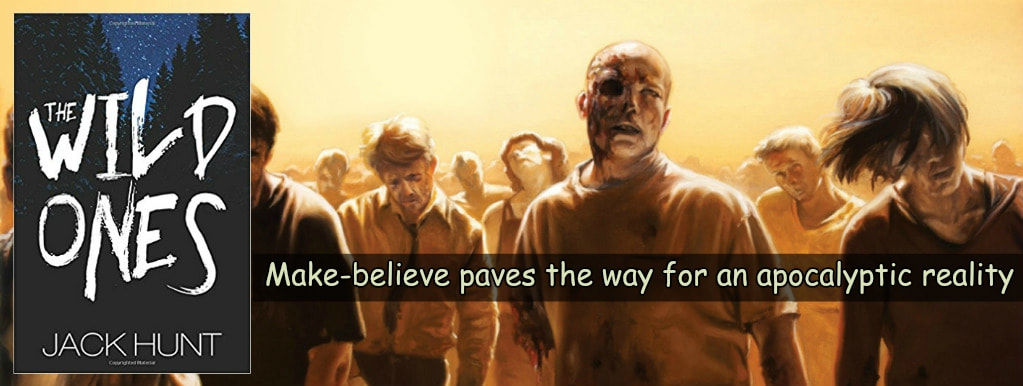
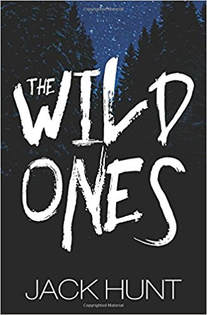
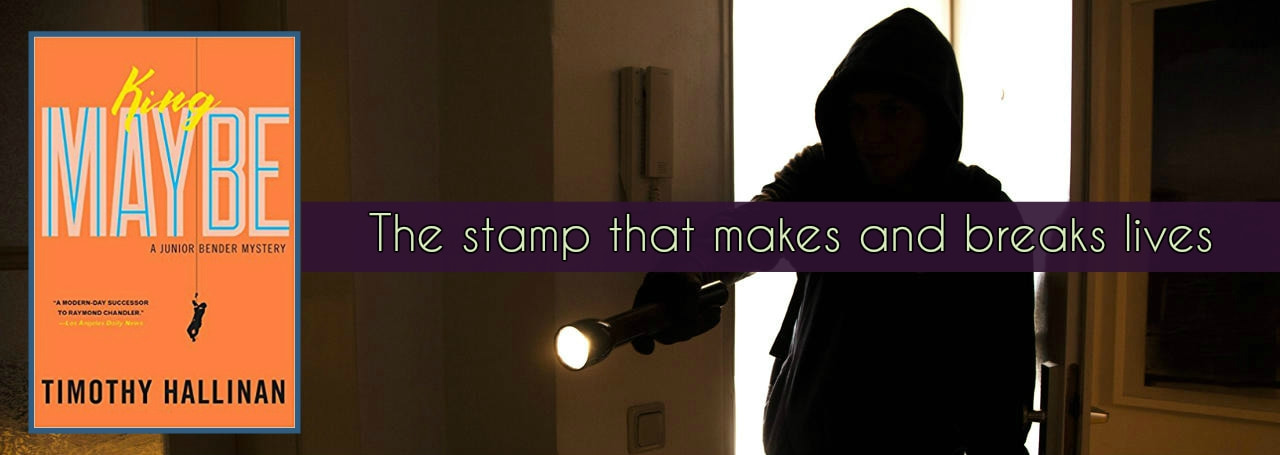
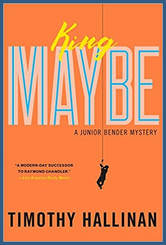
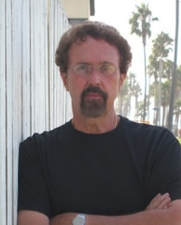
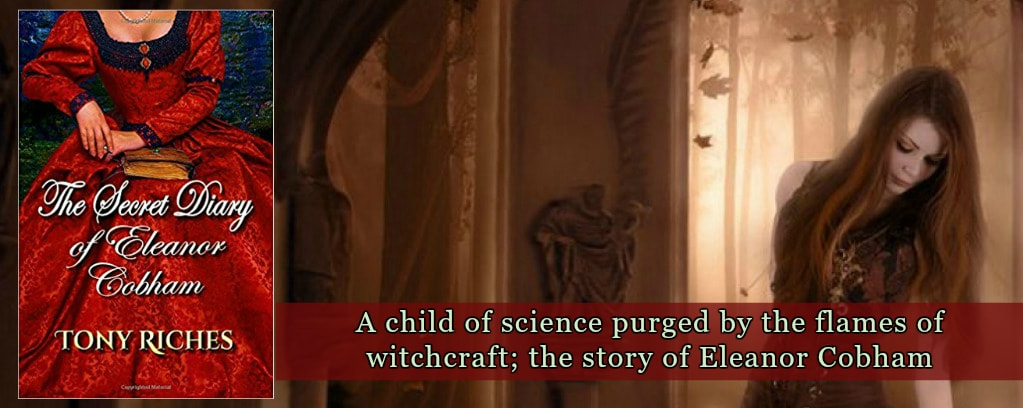
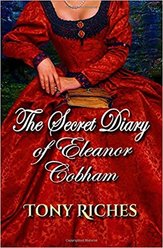
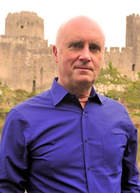
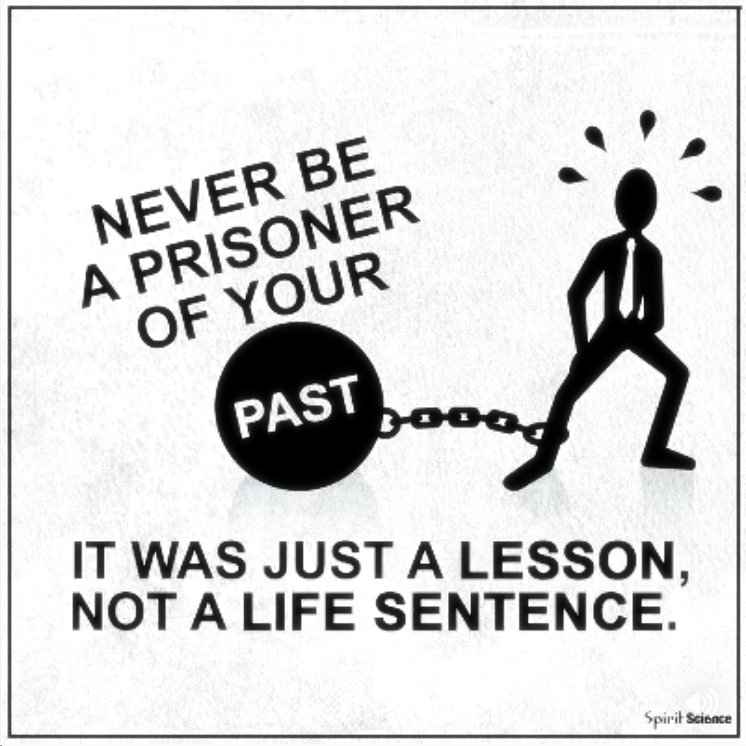
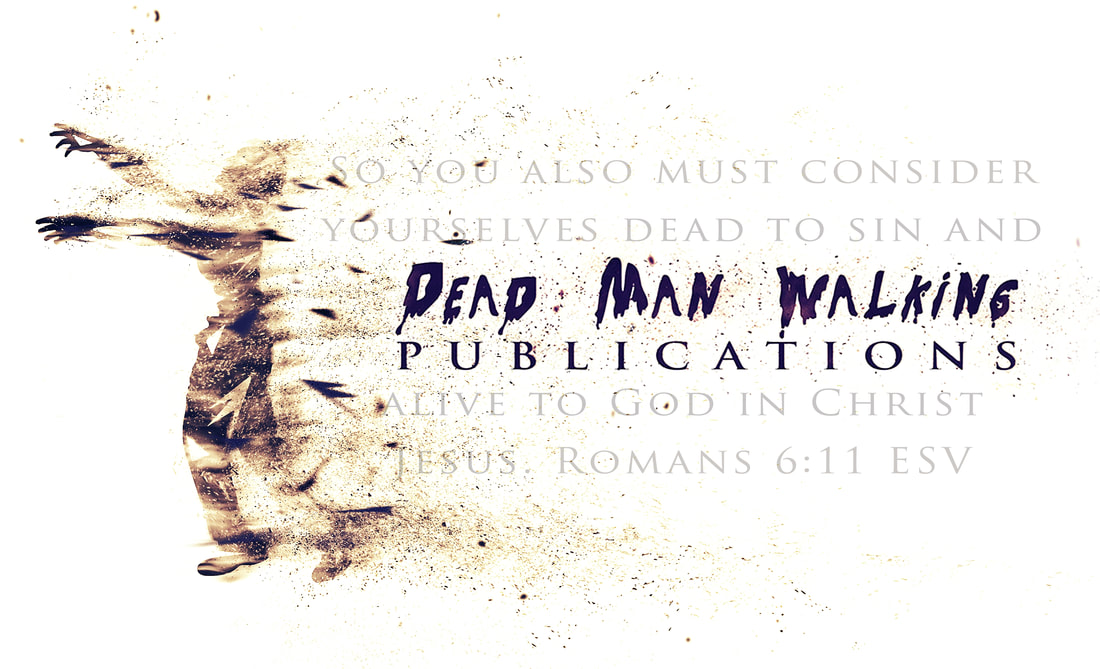

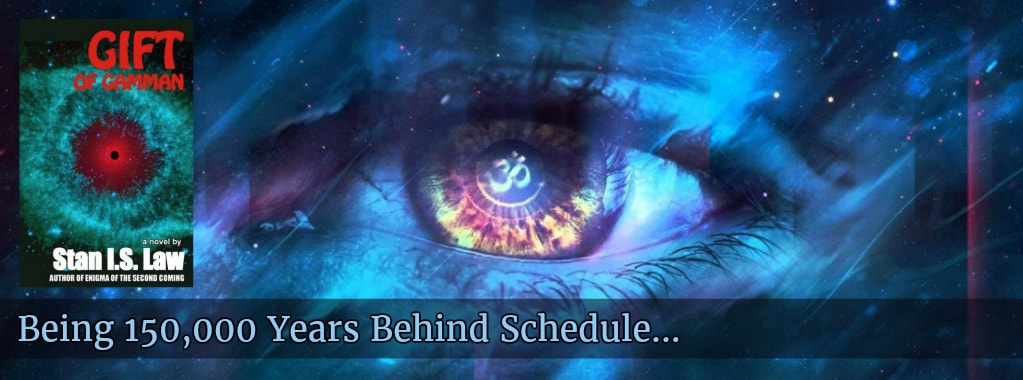
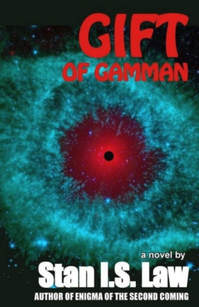
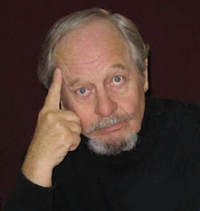

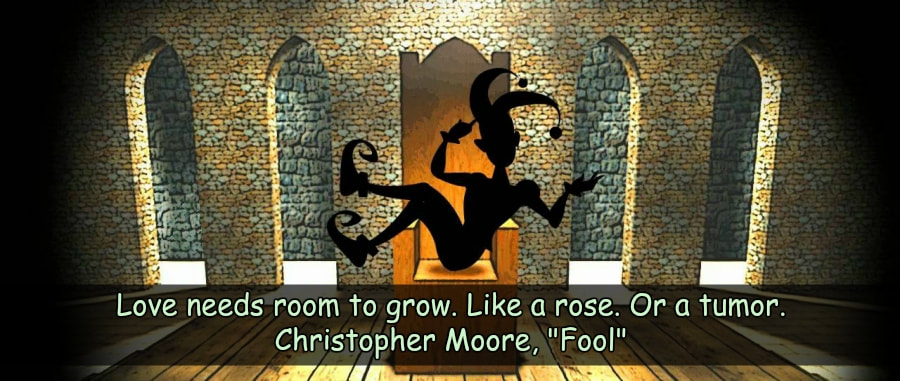
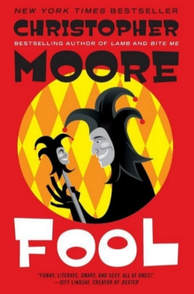

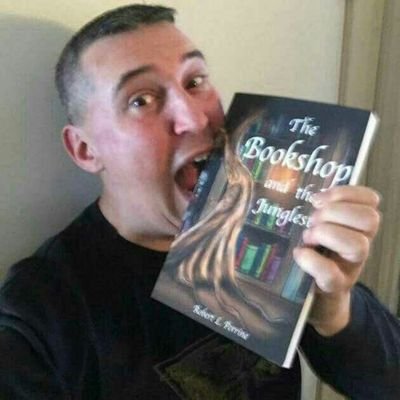
 RSS Feed
RSS Feed